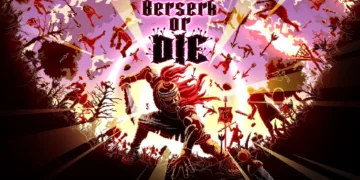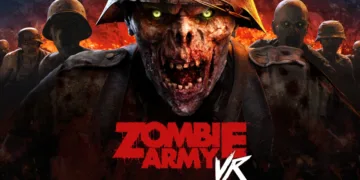Best Served Cold presents an intriguing proposition for visual novel enthusiasts and mystery lovers alike. Developed by Rogueside, this detective visual novel transports players to the fictional European city of Bukovie during an alternate 1920s Prohibition era. The game casts you as a bartender at The Nightcap, the last operating speakeasy in town, who finds themselves reluctantly pressed into service as an unofficial detective. This unique premise marries bartending mechanics with murder mystery investigation in ways that feel both natural and innovative.
The game’s approach to the noir genre stands out through its progressive social themes, presenting a world that mirrors our historical 1920s while being socially evolved beyond its time. Casual queerness and non-binary gender expression exist without scandal or sensationalism, refreshing the typical noir narrative. Set against the backdrop of a city in decline, with war looming and corruption running rampant, Bukovie becomes a character itself.
The episodic structure spans five distinct cases, each building upon the last while introducing new faces and deepening existing relationships. This creates a detective experience that feels both intimate and expansive, grounding larger mysteries in the personal stories of The Nightcap’s diverse clientele.
Mixing Drinks and Solving Crimes
The core gameplay loop of Best Served Cold revolves around a daily cycle that feels both routine and engaging. Each day begins behind the bar, where you select which patrons to serve and question. The drink mixing system operates through a simple but effective mini-game where you trace specific patterns while racing against a pursuing cursor. This mechanic serves as both a pacing device and a skill check, though it leans heavily toward accessibility over challenge. The system works well for maintaining immersion without creating frustrating barriers.
Customer management forms the strategic heart of the experience. Each patron arrives with distinct preferences, alcohol tolerances, and moods that directly impact their willingness to share information. Some customers become more talkative when slightly intoxicated, while others clam up if they drink too much. The action point system ties these elements together elegantly – serving the right drink at the right time maximizes your questioning opportunities. This creates meaningful decisions about resource allocation and conversation flow.
The detective elements center around a clue board system where you combine evidence to form new insights. While this mechanic captures the visual appeal of classic detective work, it suffers from oversimplification. The system essentially rewards brute force approaches, allowing players to systematically try every combination until something clicks. This undermines the satisfaction of genuine deduction and logical reasoning that defines great detective fiction.
Evidence presentation adds another layer to patron interactions, though it can feel restrictive. Characters react differently to various pieces of evidence, and timing these revelations becomes crucial for maintaining relationships while extracting information. The 16-day time limit per case creates urgency without being punitive, though some cases feel notably easier than others. The middle cases represent the game’s investigative design at its best, with complex motives and clever misdirection, while the opening and closing cases feel more straightforward by comparison.
Characters That Stay With You
Bukovie emerges as a richly detailed world that extends far beyond The Nightcap’s walls. The city represents a fascinating alternate history where prohibition laws exist alongside more progressive social attitudes. War looms over the population, creating an atmosphere of uncertainty that permeates every conversation. The inclusion of anachronistic technology elements like the STAC pseudo-computer and primitive mobile phones adds speculative flavor without overwhelming the period setting.
The character writing stands as Best Served Cold’s greatest strength. Each patron feels genuinely distinct, with well-defined voices and personalities that remain consistent across multiple encounters. The game excels at creating characters who exist beyond their roles in the mystery plots. They have personal relationships, ongoing conflicts, and individual quirks that make them feel like real people rather than mere plot devices. The recurring cast develops meaningful relationships over time, and watching these dynamics evolve becomes as engaging as solving the mysteries themselves.
The episodic structure works particularly well for character development. Familiar faces return across cases, allowing for deeper exploration of their backgrounds and motivations. The game skillfully balances murder mystery tropes with subversions, creating characters who might initially seem like stock noir figures but reveal unexpected depths. The dialogue contains genuine humor and personality, with multiple conversations earning genuine laughs through character interactions rather than forced comedy.
However, the game suffers from notable continuity issues that can break immersion. Characters don’t retain memory of information you’ve previously shared with them, leading to conversations that feel disconnected from earlier interactions. When you present evidence out of sequence, characters respond as if they’re hearing information for the first time, even when they’ve already discussed it. This technical limitation undermines the otherwise excellent character writing and creates jarring moments that remind you you’re playing a game rather than conducting real investigations.
The narrative structure maintains noir traditions while incorporating modern sensibilities. The mysteries themselves feature satisfying twists and well-constructed red herrings, though pacing occasionally falters during transitions between major revelations. The game handles its progressive themes with remarkable subtlety, integrating them naturally into the world rather than making them feel like commentary or agenda items.
Atmosphere and Presentation
Best Served Cold’s visual presentation perfectly captures the smoky, intimate atmosphere of 1920s speakeasies. The hand-drawn art style employs a warm color palette that makes character sprites feel inviting while maintaining the shadows and moral ambiguity essential to noir storytelling. Environmental details fill The Nightcap with authentic period touches, from art deco design elements to the careful placement of bottles and glassware behind the bar.
Character animations remain subtle but effective, conveying emotion through small gestures and expressions. The black-and-white cutscenes that open each case deserve particular praise, establishing crime scenes with film noir cinematography that builds tension before investigations begin. These sequences demonstrate clear artistic vision and help establish the game’s tone immediately.
The jazz soundtrack provides excellent atmospheric support, with smooth compositions that never intrude on conversations while perfectly evoking the speakeasy setting. Sound effects for drink mixing and customer interactions add satisfying feedback that reinforces successful actions. The absence of voice acting might initially seem like a limitation, but the strong writing carries conversations effectively without it.
Technical performance remains solid with useful accessibility features like dyslexic-friendly fonts and auto-advancement options, though the auto-advancement speed feels too fast for comfortable reading. Minor issues like occasional audio bugs and text skipping occur but don’t significantly impact the experience. The interface design maintains the art deco aesthetic throughout, with menu systems that feel cohesive with the game world.
The clue board deserves special mention for its visual appeal, even if its functionality disappoints. The classic detective’s investigation board looks exactly as it should, with string connecting evidence and photos pinned to cork boards. This creates satisfying visual feedback for progress, even when the underlying mechanics feel too simple.
Value and Replay Considerations
Best Served Cold offers approximately 13-15 hours of content across its five cases, which represents solid value for a narrative-focused experience. The achievement system integrates naturally with story progression, rewarding players for engaging with different dialogue options and character interactions rather than arbitrary completion metrics.
The game’s replay value faces inherent limitations common to mystery stories. Once you know who committed each murder and how, the investigation loses much of its tension and surprise. However, the strong character writing provides some incentive for return visits, as different dialogue choices can reveal new aspects of patron personalities and relationships.
Save-scumming becomes almost necessary for players who want to experience different conversation paths, as the game’s dialogue system offers multiple approaches to each interaction. Some players may find value in exploring how different characters respond to various questioning techniques, though this feels more like completionist behavior than natural replay motivation.
The episodic structure helps maintain engagement across the full runtime, with each case introducing new characters while developing existing relationships. The difficulty balance across cases creates a satisfying progression, though the easier opening and closing cases may leave some players wanting more challenge.
A Worthwhile Investigation
Best Served Cold succeeds as both a detective story and a character study, despite mechanical limitations that prevent it from achieving true greatness. The game’s greatest strength lies in its exceptional character writing and world-building, creating a cast of patrons who feel genuine and relationships that develop meaningfully over time. The unique bartending-detective concept works well enough to differentiate it from other visual novels while maintaining focus on narrative elements.
Visual novel enthusiasts will find much to appreciate in the game’s approach to storytelling and character development. Murder mystery fans should find satisfaction in the case structures and noir atmosphere, even if the investigation mechanics feel somewhat shallow. Players seeking narrative-focused experiences will likely overlook mechanical shortcomings in favor of the strong writing and atmospheric presentation.
The game works particularly well as an entry point for newcomers to visual novels, thanks to its accessible mechanics and engaging premise. The bartending elements provide just enough interactivity to keep players who might struggle with pure text-based experiences engaged, while the mystery structure creates clear goals and progress markers.
Areas for improvement include deepening the investigation mechanics to reward genuine deduction over brute force approaches, refining the clue combination system to feel more meaningful, and addressing the continuity issues that can break immersion during conversations. Technical polish could also benefit from attention, though existing issues remain minor.
Best Served Cold represents a solid entry in the detective visual novel genre that prioritizes character development and atmospheric storytelling over mechanical complexity. While it may not revolutionize either bartending or detective games, it creates a compelling experience that lingers in memory long after the final case closes. For players drawn to character-driven mysteries set in richly detailed worlds, The Nightcap proves a speakeasy worth visiting.
A Steam code for this game was provided by the developer for the purpose of this review.
The Review
Best Served Cold
Best Served Cold delivers exceptional character writing and atmospheric world-building that elevate simple mechanics into something memorable. The unique bartending-detective concept works despite mechanical limitations, creating an engaging narrative experience. While investigation systems feel shallow and technical issues occasionally intrude, the strong cast and noir atmosphere make this a worthwhile journey for mystery fans.
PROS
- Exceptional character writing and development
- Rich atmospheric world-building
- Unique bartending-detective concept
- Progressive social themes handled tastefully
- Beautiful hand-drawn art style
CONS
- Shallow investigation mechanics
- Clue combination system rewards brute force
- Character memory continuity issues
- Repetitive drink mixing in later stages



















































